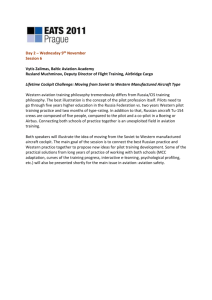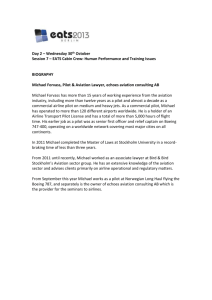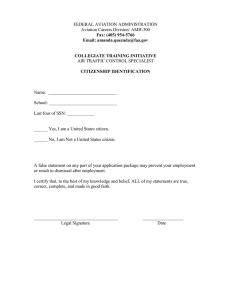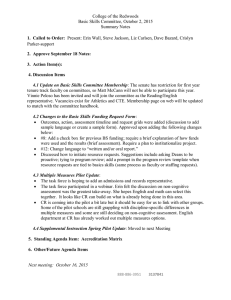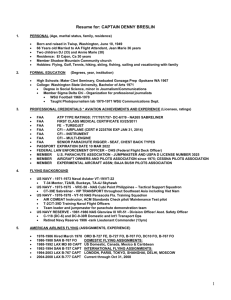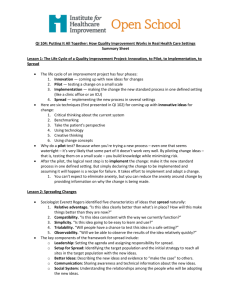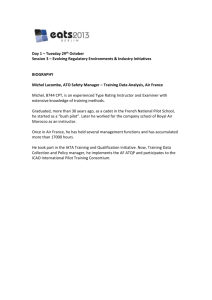On Monday, August 31, the Federal Aviation Administration ("FAA") issued... proposed rulemaking ("NPRM"), proposing to modify numerous pilot training requirements... An Aviation Law Update
advertisement
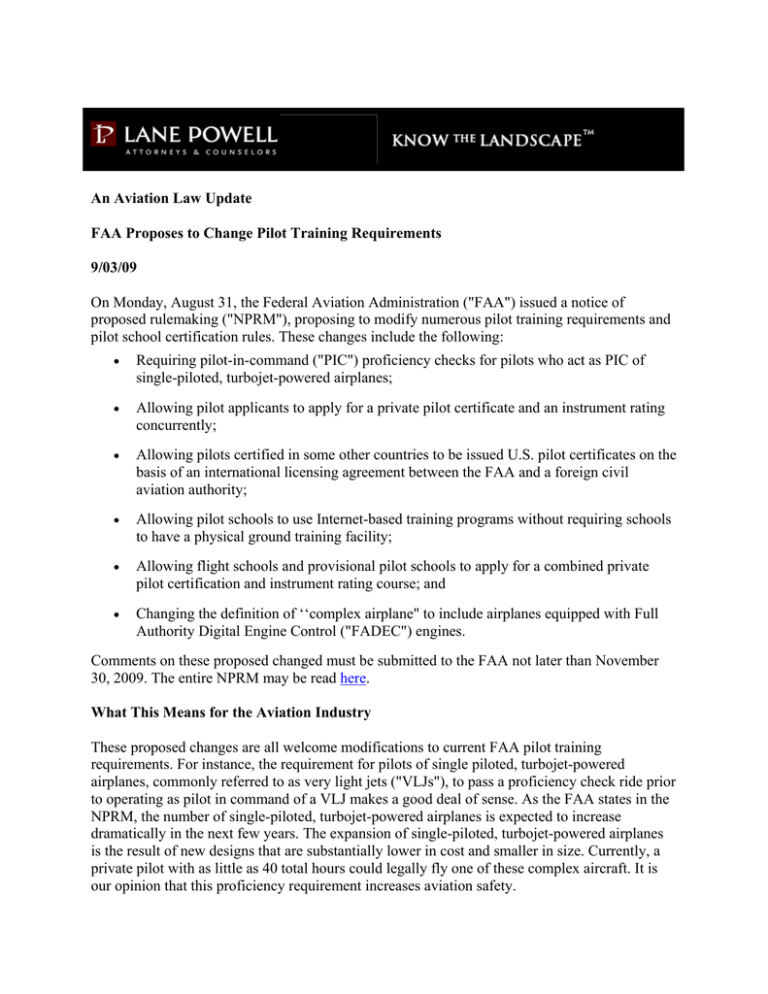
An Aviation Law Update FAA Proposes to Change Pilot Training Requirements 9/03/09 On Monday, August 31, the Federal Aviation Administration ("FAA") issued a notice of proposed rulemaking ("NPRM"), proposing to modify numerous pilot training requirements and pilot school certification rules. These changes include the following: • Requiring pilot-in-command ("PIC") proficiency checks for pilots who act as PIC of single-piloted, turbojet-powered airplanes; • Allowing pilot applicants to apply for a private pilot certificate and an instrument rating concurrently; • Allowing pilots certified in some other countries to be issued U.S. pilot certificates on the basis of an international licensing agreement between the FAA and a foreign civil aviation authority; • Allowing pilot schools to use Internet-based training programs without requiring schools to have a physical ground training facility; • Allowing flight schools and provisional pilot schools to apply for a combined private pilot certification and instrument rating course; and • Changing the definition of ‘‘complex airplane" to include airplanes equipped with Full Authority Digital Engine Control ("FADEC") engines. Comments on these proposed changed must be submitted to the FAA not later than November 30, 2009. The entire NPRM may be read here. What This Means for the Aviation Industry These proposed changes are all welcome modifications to current FAA pilot training requirements. For instance, the requirement for pilots of single piloted, turbojet-powered airplanes, commonly referred to as very light jets ("VLJs"), to pass a proficiency check ride prior to operating as pilot in command of a VLJ makes a good deal of sense. As the FAA states in the NPRM, the number of single-piloted, turbojet-powered airplanes is expected to increase dramatically in the next few years. The expansion of single-piloted, turbojet-powered airplanes is the result of new designs that are substantially lower in cost and smaller in size. Currently, a private pilot with as little as 40 total hours could legally fly one of these complex aircraft. It is our opinion that this proficiency requirement increases aviation safety. Likewise, the ability for pilots who have obtained their pilot certificates in other countries to convert those certificates to U.S. pilot certificates just makes sense. Currently, these pilots are required to basically start the certification process over again. The FAA also proposes to add to the definition of "complex airplane," aircraft equipped with FADEC systems. This new relatively new technology is complex enough to justify being moved into the complex airplane category. The remaining proposed changes generally streamline the pilot certification process and replace some training requirements with additional instrument training requirements. The Lane Powell Aviation Team will be preparing and submitting a formal comment letter to the FAA. Should you wish to add your questions or comments, please use the contact information below. For more information, please contact the Aviation Law Practice Group at Lane Powell: 206.223.7000 Seattle 503.778.2100 Portland lppc@lanepowell.com www.lanepowell.com We provide the Aviation Law Hotsheet as a service to our clients, colleagues and friends. It is intended to be a source of general information, not an opinion or legal advice on any specific situation, and does not create an attorney-client relationship with our readers. If you would like more information regarding whether we may assist you in any particular matter, please contact one of our lawyers, using care not to provide us any confidential information until we have notified you in writing that there are no conflicts of interest and that we have agreed to represent you on the specific matter that is the subject of your inquiry. Copyright © 2009 Lane Powell PC Seattle - Portland - Anchorage - Olympia - Tacoma - London 2
